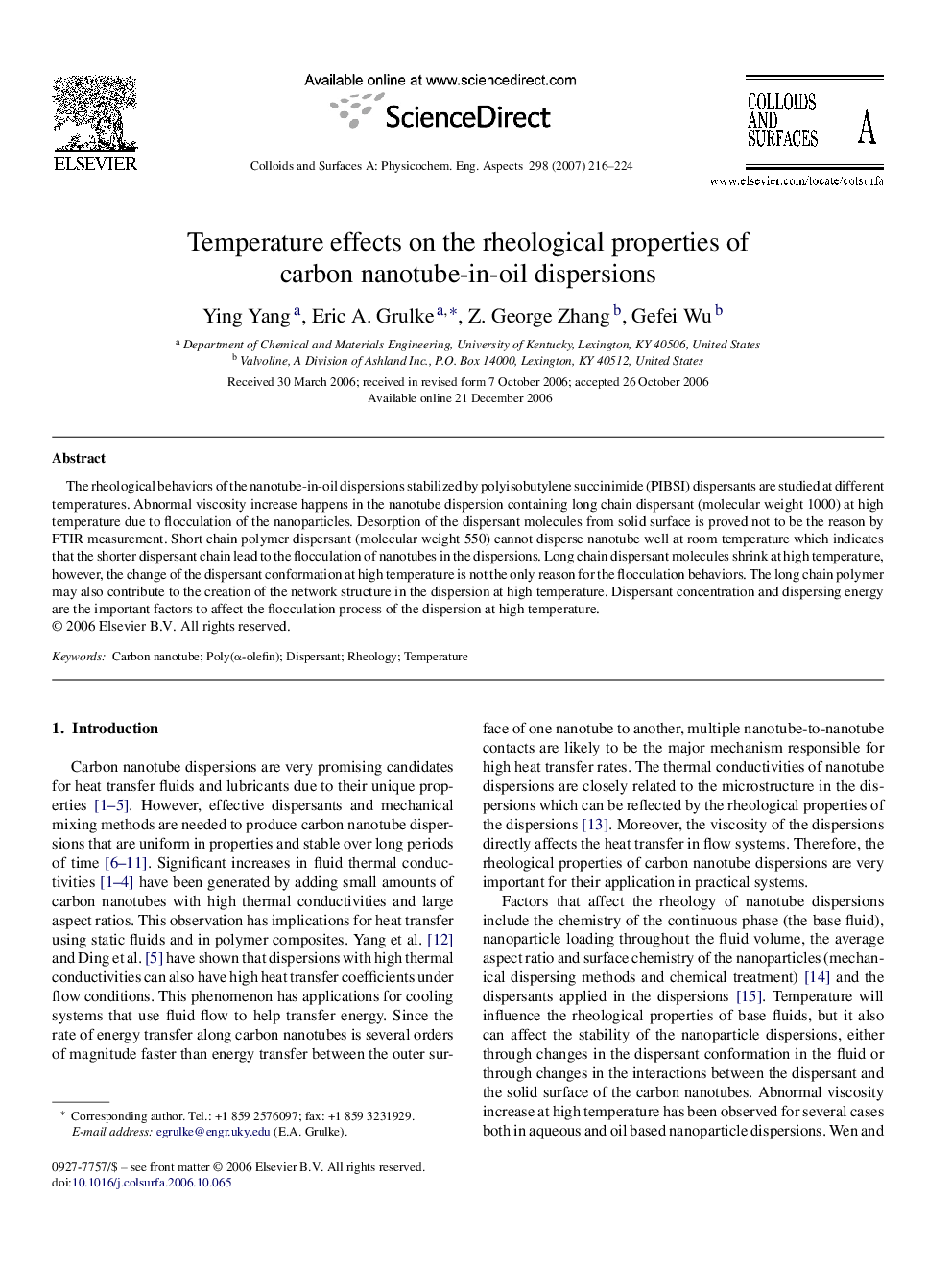| Article ID | Journal | Published Year | Pages | File Type |
|---|---|---|---|---|
| 597891 | Colloids and Surfaces A: Physicochemical and Engineering Aspects | 2007 | 9 Pages |
The rheological behaviors of the nanotube-in-oil dispersions stabilized by polyisobutylene succinimide (PIBSI) dispersants are studied at different temperatures. Abnormal viscosity increase happens in the nanotube dispersion containing long chain dispersant (molecular weight 1000) at high temperature due to flocculation of the nanoparticles. Desorption of the dispersant molecules from solid surface is proved not to be the reason by FTIR measurement. Short chain polymer dispersant (molecular weight 550) cannot disperse nanotube well at room temperature which indicates that the shorter dispersant chain lead to the flocculation of nanotubes in the dispersions. Long chain dispersant molecules shrink at high temperature, however, the change of the dispersant conformation at high temperature is not the only reason for the flocculation behaviors. The long chain polymer may also contribute to the creation of the network structure in the dispersion at high temperature. Dispersant concentration and dispersing energy are the important factors to affect the flocculation process of the dispersion at high temperature.
